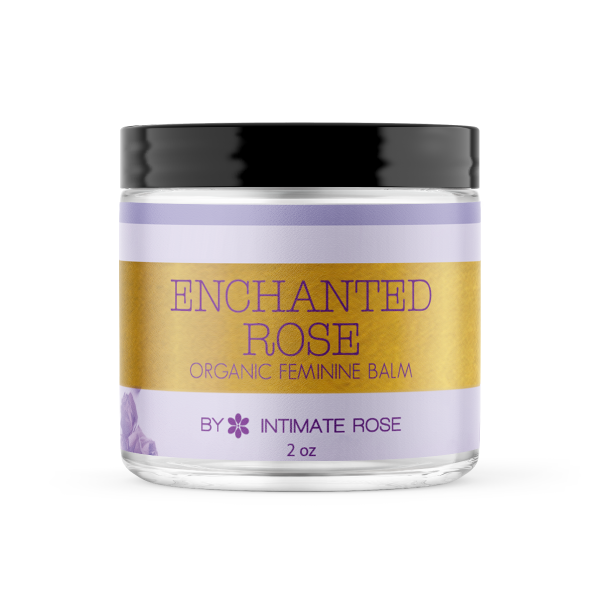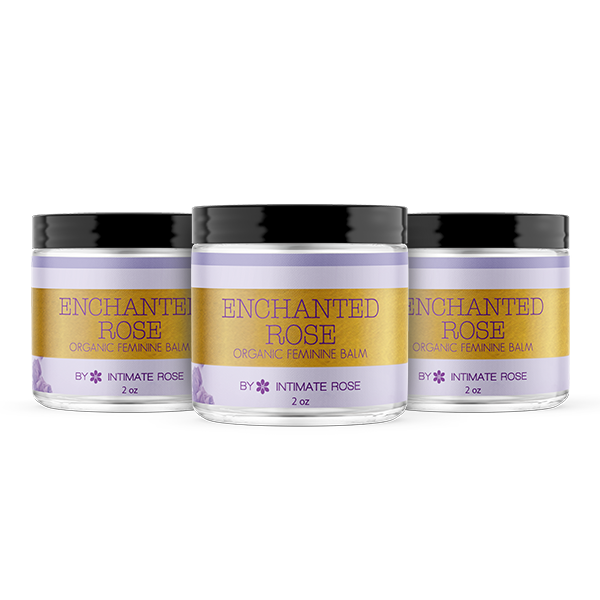Managing menopause symptoms like hot flashes, brain fog, weight gain, anxiety, and sleep disruptions can be challenging. Not to mention the less obvious symptoms caused by declining estrogen, such as bone density loss, less muscle mass, and lowered cardiovascular support.
Some women choose to treat menopause symptoms without medication, while others prefer to ease the menopause transition with hormone therapy. Regardless of the method used, some lifestyle changes can also help manage several symptoms associated with the menopause transition.
Read on, to learn how some easy lifestyle modifications can improve an individual’s overall well-being during menopause and help manage symptoms.
What Causes Menopause Symptoms?
From puberty to menopause, estrogen and progesterone (and testosterone, to a smaller extent) naturally rise and fall to support menstruation and reproduction. During the mid to late 40s, or earlier or later for some, perimenopause starts and the ovaries produce less estrogen as the reproductive stage of life ends.
Although primarily recognized for supporting the female reproductive system, estrogen passes through almost every organ, muscle, bone, and body tissue. So, when estrogen production starts to decline with perimenopause, it can also impact cardiovascular health, bone growth, muscle mass, brain health, and vaginal health.
This is why, in addition to irregular menstruation, menopause symptoms can also include anxiety, brain fog, depression, loss of bone density, heart palpitations, hot flashes, loss of muscle mass, weight gain, joint pain, dry skin, and genitourinary symptoms.
Another aspect of declining estrogen is that it tends to happen sporadically rather than consistently. This can cause menopause symptoms to arise and ease off randomly without any warning or recognizable pattern.
Lifestyle Changes for Menopause
With recent research largely debunking the risks previously linked to menopause hormone therapy (MHT), it is more widely recognized than ever as the most effective way to treat menopause symptoms. That said, some pertinent lifestyle changes have also been proven to help ease several menopause symptoms.
Eating The Right Food Can Help
Nutritional support during menopause is not about dieting but rather about eating well. In addition to helping with menopausal weight gain and reducing hot flashes, some dietary changes can make all the difference to your mental and physical well-being during menopause.
For instance, food rich in vitamin B6 can support hormone regulation, magnesium can help improve sleep, and adequate protein and fiber help boost muscle and bone health. Omega-3 fatty acids help boost the immune system, lower blood pressure, and support cardiovascular health to prevent heart disease later in life.
Research also shows that the calcium in dairy products helps to keep bones strong as declining estrogen levels start to lower bone density and increase the risk of osteoporosis. Eating foods rich in vitamin D can help the body absorb calcium so it can be used correctly.
Read: Foods to Avoid During Menopause
It is known that each woman experiences menopause uniquely, so a tailor-made menopause diet that works for one may not work for another. To ease menopause symptoms with nutritional support, seek guidance from a dietician or nutritionist to create a menopausal meal plan based on your symptoms and eating habits.
Reduce Hot Flashes & Night Sweats with Lifestyle Changes
Declining estrogen levels throughout the menopause transition can affect the body's thermostat (hypothalamus), making it more sensitive to internal temperature changes. Essentially, if the hypothalamus senses an increase in body temperature it will begin cooling the body down.
This process, known as a hot flash, can cause a sudden feeling of heat in the chest, neck, and face, red blotchy skin, upper body perspiration, increased heartbeat, and a cooling sensation as the hot flash subsides. When hot flashes happen at night, they are called night sweats and are a common cause of disrupted sleep during menopause.
Although the most effective way of reducing hot flashes is through estrogen supplementation, making some lifestyle changes and environmental adjustments can help manage them.
For instance, wearing clothes from natural materials like cotton and hemp can help keep the body cool. It also helps to dress in layers that can be easily removed and replaced as the body temperature changes. At night, cotton or linen sheets can help keep the body cooler than sheets made from synthetic materials.
Many women also find it helpful to carry a hand fan during the day and use ceiling fans or air conditioners to lower the room temperature at work or home. Drinking cold water throughout the day is also useful for maintaining a steady body temperature and staying hydrated.
Although it’s not true for all women, alcohol, smoking, and spicy food can trigger hot flashes and night sweats in some. If you notice this applies to you, try eliminating one at a time to identify your trigger(s).
Hormonal and Non Hormonal Menopause Relief

Maintaining a Healthy Weight
Menopause does not necessarily cause weight gain but hormone imbalances can contribute to the loss of muscle mass and slow the metabolism, while age can lower a person’s physical activity. Collectively, these changes can result in weight gain during menopause, particularly around the midsection.
Although some weight gain is expected during the menopause transition, evidence suggests it can increase the severity of hot flashes, whereas losing weight has been found to reduce their intensity. Weight gain during menopause can also affect some women’s confidence and mental health when anxiety or mild depression about their changing physical appearance alters their quality of life.
If not maintained, weight gain during menopause can also put unnecessary pressure on the joints and bones. Given that declining estrogen can weaken the bones and reduce joint flexibility, the added inflammation from weight gain and obesity could result in increased joint pain, more bone fractures, and contribute to the onset of osteoporosis.
Eating a well-balanced and nutritious diet can help speed up menopause metabolism and keep weight gain in check. Along with a balanced diet, exercising 3-5 times a week for 20 minutes can help maintain a healthy body and mind during the menopause transition.
Cognitive & Musculoskeletal Symptoms of Menopause: How Exercise Helps
In addition to maintaining a healthy weight during menopause, extensive research has shown that regular exercise provides several other benefits during this hormonal transition.
Cardio or aerobic exercise such as walking, dancing, hiking, biking, or swimming boosts serotonin release to improve energy levels, ease brain fog, and relieve anxiety or mild depression. Aerobic exercise can also improve sleep, breathing, and cardiovascular health when practiced at least 3 times per week.
To enhance bone strength and muscle growth caused by diminishing estrogen levels, practicing strength training with weights, yoga, or Pilates for 20 minutes twice a week is recommended to prevent osteoporosis. Yoga or Pilates can also reinstate flexibility and balance, improve posture, and relieve back pain and joint aches.
Can Lifestyle Changes Help With Genitourinary & Pelvic Symptoms of Menopause?
Genitourinary symptoms of menopause include vaginal dryness, incontinence, and vaginal or vulvar irritation.
Gently applying an organically-made vaginal moisturizer each day can relieve vaginal discomfort and vulvar irritation without upsetting the natural vaginal pH balance. Using a water-based vaginal lubricant for foreplay and sex will also protect the vaginal pH while easing pain or discomfort during intercourse.
Throughout life, the pelvic floor muscles act as a protective hammock beneath the pelvis to support organs such as the bladder, bowel, vagina, and uterus, while also contributing to sexual function and pleasure. However, just like other muscles, the pelvic floor muscles can lose strength and elasticity when estrogen levels are low.
If they weaken during menopause, pain during sex, pelvic organ prolapse, and bladder or bowel leaks (incontinence) can ensue. In these cases, practicing Kegel exercises regularly and consistently, with or without the help of Kegel Weights, can re-strengthen the pelvic floor and improve quality of life by eliminating urine leaks and painful sex.
However, the pelvic floor muscles can also tighten in reaction to vaginal dryness, painful penetration, or discomfort during sex. In these cases, silicone vaginal dilators are helpful to massage the pelvic floor and muscles and improve blood flow to vaginal tissue.
If you are experiencing pelvic pain during the menopause transition, don’t hesitate to make an appointment with a pelvic floor physical therapist to determine the cause and best treatment option for you.
Can Lifestyle Changes Relieve Menopause Anxiety and Improve Mindfulness?
Declining estrogen levels, getting older, being an empty nester, and experiencing unexplained body changes are often the root of added anxiety, sadness, negativity, or depression during menopause. If left untreated, these feelings can escalate and gravely affect quality of life.
Practicing meditation, mindful walking, or breathing exercises each morning can help women transitioning through menopause to start their day mindfully. Being present and mindful is a powerful way to release anxious thoughts and emotions when they arise.
Mindfulness can also enable women to see themselves in a more positive light where they can accept the transitional stage of menopause as a temporary phase. Perhaps even opening their mind to the wisdom of the elder years rather than mourning the loss of youth.
Lastly, mindfully sharing menopause experiences, symptoms, and feelings with other menopausal women can be not only therapeutic but also empowering to know that you are not alone.
Therapies that Don’t Help Menopause Symptoms
Although acupuncture, reflexology, and magnetic therapy are often included in recommended lifestyle changes for easing menopause symptoms like hot flashes, studies into their efficacy have not shown any benefits.
That said, although they might not alleviate hot flashes, any therapy that encourages mind and body relaxation during menopause can be helpful to ease anxiety, improve sleep, reduce fatigue, and improve quality of life.

Get your personalized HRT plan!

Get your personalized HRT plan!
Conclusion
Largely originating from estrogen decline, menopause symptoms are numerous and affect individuals in different ways. While symptoms do not last forever, easing their intensity can improve your quality of life throughout the menopause transition and prevent more serious conditions like cardiovascular disease and osteoporosis from occurring postmenopause.
Whether you choose to use menopause hormone therapy (MHT) or manage your menopause transition naturally, incorporating the simple lifestyle adjustments outlined above can provide additional benefits and extra help to ease common menopause symptoms.
References
British Nutrition Foundation – Managing Menopause with Diet - https://www.nutrition.org.uk/nutrition-for/women/menopause/managing-menopause-symptoms-with-nutrition-and-diet/
National Library of Medicine - Physical Activity and Health During the Menopausal Transition - https://pmc.ncbi.nlm.nih.gov/articles/PMC3270074/
Mayo Clinic – Hot Flashes - https://www.mayoclinic.org/diseases-conditions/hot-flashes/symptoms-causes/syc-20352790
Taylor and Francis Online Medical Journals – Understanding Weight Gain During Menopause - https://www.tandfonline.com/doi/full/10.3109/13697137.2012.707385
Balance Menopause - Pelvic floor health during the menopause Factsheet - https://www.balance-menopause.com/menopause-library/pelvic-floor-health-during-the-menopause/
National Library of Medicine - Reducing Menopausal Symptoms With Mindfulness-Based Meditation - https://pubmed.ncbi.nlm.nih.gov/38363970/

Get your personalized HRT plan!












